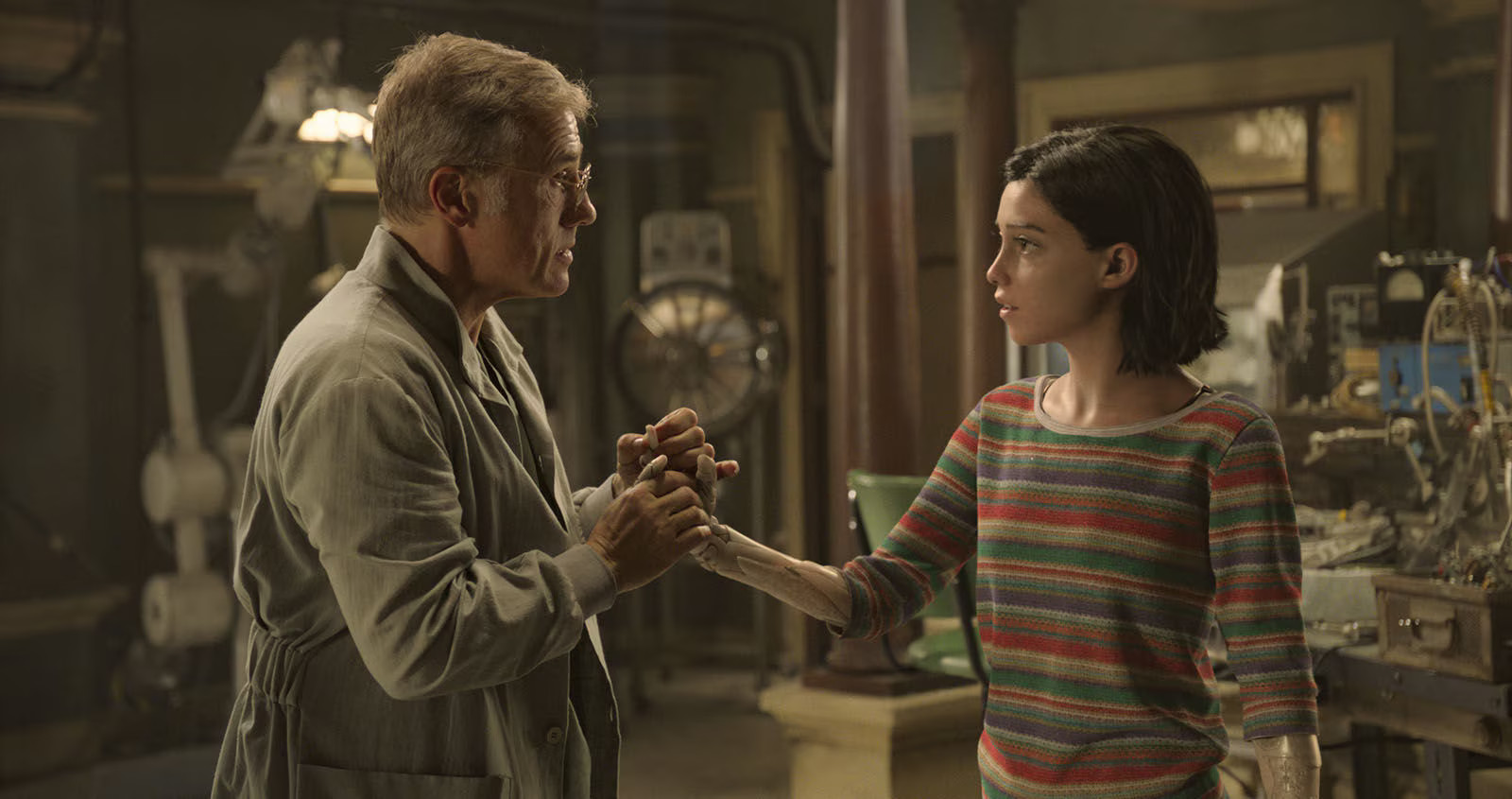Oscar-winning filmmaker Guillermo del Toro is in Venice this weekend premiering one of his lifelong passion projects, Frankenstein. But as often as we cover Del Toro and his work – he’s long been an outspoken champion of animation – what caught our attention this weekend were the words of one of the film’s stars, two-time Oscar-winner Christoph Waltz.
Waltz drew a mild chuckle and a few claps for his deadpan remark that “CGI is for losers” when the cast was asked a softball question about the film’s practical effects. Perhaps it was meant as a joke, but at whose expense? Who, joking or not, was Waltz calling losers?
Maybe he meant A-list Hollywood actors who star in and are paid handsomely for CGI-heavy spectacles like Alita: Battle Angel, Spectre, The Legend of Tarzan, The Green Hornet, or The Zero Theorem. Come to think of it, there’s one actor who’s appeared in all of those films…
It could have been the directors of CGI-driven fare like Pacific Rim, Hellboy, Pan’s Labyrinth, The Shape of Water, or Crimson Peak. But that seems unlikely, given that the director of those films was sitting just a few chairs away, and Waltz doesn’t strike us as the type to insult his boss so brazenly in public.
Fans of CGI? Possible, but unlikely. Few actors openly disparage the very audiences who buy tickets and sustain their careers.
That leaves the people who create CGI effects themselves, the artists and technicians. An underpaid, overworked, and too often under-attack workforce whose demanding craft takes years of training and whose contributions are essential to the final quality of films.
It’s a shame that an actor who’s benefited so heavily from their work would dismiss hundreds, sometimes thousands, of colleagues as “losers.” And in a bitter way, maybe that word fits, since VFX workers are often the losers when it comes to recognition, job security, benefits, and fair wages.
Of course, it’s just as possible Waltz was only angling for cheap heat, a quick, awkward laugh, and a headline-ready soundbite. But jokes land best when they punch up, and this one didn’t. Instead, it trivialized the labor of an entire industry already in crisis, an industry that actors themselves rely on to maintain their status and careers.
Waltz’s comment also echoes the company line being fed to the media regarding Netflix’s VFX-heavy Frankenstein: practical effects are noble and appeal to awards voters while digital ones are best left unmentioned, no matter how much they shape the finished film. The CGI should be something everyone sees, but nobody register; a fantasy we’re asked to believe, much like Shelley’s words two centuries ago, now adapted by Del Toro.
After Waltz’s remark, Del Toro quickly clarified: “When you grab resources as a filmmaker, there is no bad resource. There are badly used resources. We have digital effects [in our film], but you only do it at the limit of the physical. It is not an easy solution. The more you have experience with the tools, the more you know how to work with them.”
A bit of fire-fighting, perhaps, but it’s easy to take someone with Del Toro’s resume at their word.
In the end, maybe Waltz’s line was nothing more than a throwaway gag. But in an industry built on the backs of artists whose work is often deliberately invisible, jokes like “CGI is for losers” land harder than they should, especially coming from someone whose career has been propped up by the very craft he so casually dismissed.


